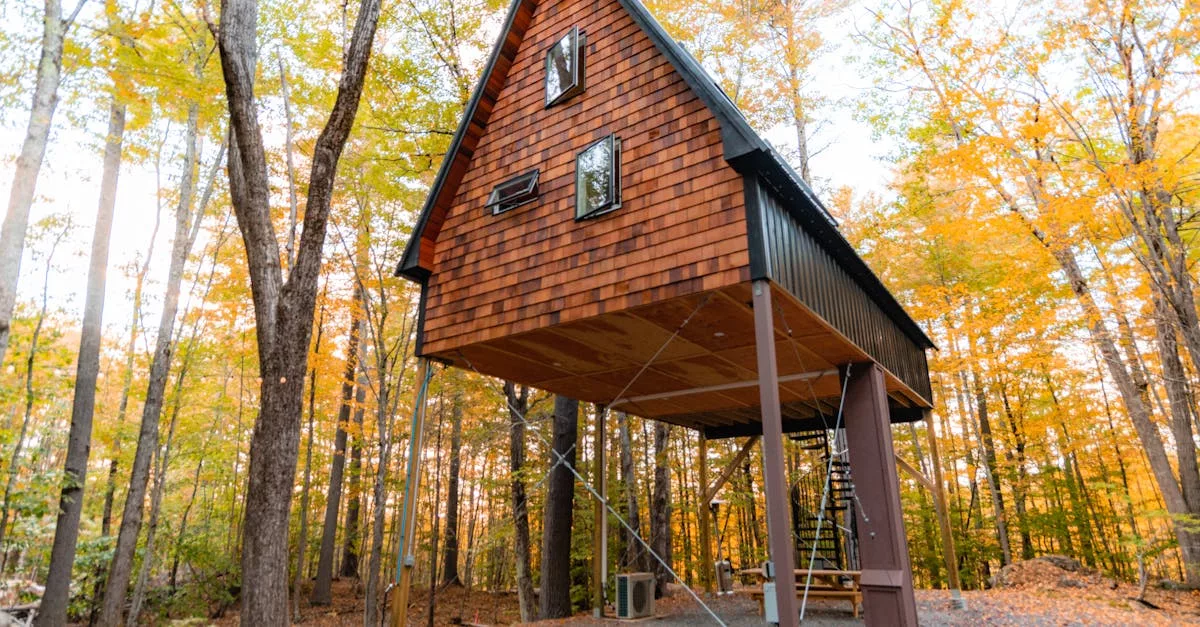The Airbnb Revolution: Economic Lifeline or Community Disruptor?
Since its inception in 2008, Airbnb has changed how we think about traveling. Instead of using the generic hotel model, it allows people to stay in unique local lodging that often feels a lot more personal. But with more growth by Airbnb, concerns are building over impacts on local communities, housing markets, and neighborhood dynamics.
These topics have become the tipping point in cities like Barcelona and in the Canary Islands, through protests from the public and new regulations. So, is the Airbnb option really good for local economies or does it cross the line to community disruption?
Against this background, we consider both sides of the arguments to see exactly how it is that Airbnb has impacted the world of travel—and local life—around the globe.
The Rise of Airbnb and Early Appeal
When Airbnb launched, it had a rather noble mission: provide a venue for people to share their homes with travelers in need of an affordable and unique alternative to standard hotel rooms. Hosts could get some extra dollars for renting out a spare room or property, while travelers got to live “like a local” in the neighborhoods that these traditional hotels usually left behind. It was a feeling of win-win, so millions of people boarded the train.
For hosts, especially in high-demand tourist areas, it has provided an economic fillip. For travelers, a chance to experience real neighborhoods and local cultures rather than be confined to the “tourist bubble” of major hotels. But just as it’s grown, the challenges—especially for the communities that host these travelers—grow with it.
The Economic Benefits of Airbnb
- Revenue to Local Hosts
With Airbnb, serious supplemental income can be earned by homeowners, especially in those areas that are considered hot tourist spots. Some people aren’t using Airbnb merely as a side hustle; hosting on this service is a vital activity. Additional income pays for mortgages, utility bills, and even supplements the main income when times get tough. - Boost for Local Businesses
One of the selling points of Airbnb is that it encourages travelers into the residential districts to support local businesses that otherwise do not benefit from tourism. Instead of swarming large tourist districts, guests may eat at neighborhood cafes, shop at local stores, or discover small businesses. In fact, studies show that Airbnb guests contribute much to local economies, funneling money into various areas most hotels do not reach. - Opening Up New Destinations
It has shone a light on the most underrated destinations, from small towns to rural villages. Since many of them don’t have hotel infrastructure, Airbnb manages to attract new waves of tourism and, by consequence, animates the local economy without needing major development.
The Dark Side of Airbnb: Community Disruption and Over-Tourism
While the economic benefits that Airbnb has brought in are palpable, the cons have raised contentious backlashes especially in high-density cities and favorite vacation destinations.
- Increased Property Prices and Housing Shortage
Landlords in cities such as Barcelona and New York have removed long-term rentals from the market, putting the properties to use on sites like Airbnb for very short stays at a much higher profit. This leads to housing shortages and a forcing up of rent, making it very hard for locals to find places to live that they can afford. The problem has become the centerpiece of everything from protests to demands for stronger regulations in cities such as Barcelona in order to dampen the impact seen by Airbnb on the housing market. - Gentrification and Displacement
As such, it catalyzes gentrification, often meaning increasing rents and, in some instances, growing displacement of longtime residents. Locals in Canary Islands have lamented that the rise of Airbnb has meant one can no longer live in the neighborhoods they had always known. So, the more tourists move in, the more locals are pushed out, changing the very grain of these communities. - Noise, Crowding, and Lifestyle Conflicts
What used to be quiet neighborhoods now suffer the constant comings and goings of visitors through Airbnb. Noises, greater congestion, and conflict with tourist lifestyles that don’t quite respect local norms make many residents complain about the new reality. Large cities have already witnessed campaigns by residents for noise curfews and neighborhood-only regulations in order to try and combat the problem.
Government Response and Attempts at Regulation
With protests growing, cities worldwide are intervening with regulations designed to temper the impact of Airbnb.
- Restrictions on Short-Term Rentals
Limits have already been imposed on short-term rentals in many favorite destinations, from Barcelona to the Canary Islands. Some now limit the number of days a property can be let; others limit rentals to a principal residence, making it more difficult for investors to monopolize the market. - Keeping Airbnb to Primary Residences
Cities like Paris and Amsterdam permit rentals of Airbnb only for primary residences to help alleviate pressure from the housing shortages. That means that homeowner guests can rent out their space, but owners cannot convert an investment property into a short-term rental, helping preserve the housing supply for locals. - Taxation and Accountability
Many cities, including San Francisco and New York, also require hosts to pay taxes or file for permits, which the city uses to fund both housing projects or community programs. Those moves have helped ensure the benefits of Airbnb come with responsibilities that create positive change in local communities.
Finding a Balance: The Future of Airbnb
Undoubtedly, the Airbnb revolution has brought communities all over the world both meritorious benefits and outrageous challenges. The question is not whether it should be allowed but how it can operate so that its mischievous effects are fair for both the travelers and the homegrown people.



